The Chinese government vowed to promote social development to ensure and improve the wellbeing of people in 2017, according to the Government Work Report.
Let us take a look at some of the targets set for 2017.
10 Mobile rates for domestic roaming and long-distance calls will be cancelled within this year
This year, the government will do more to increase broadband speed and lower rates for internet services.
Mobile rates for domestic roaming and long-distance calls will be cancelled; rates for broadband services for small and medium enterprises will be slashed; and rates for international calls will be lowered.
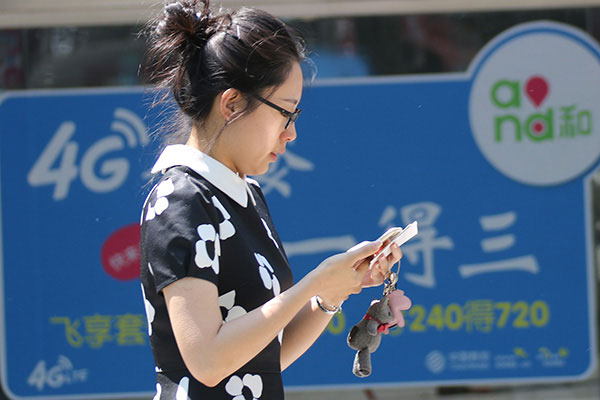
A mobile phone user walks past a logo of China Mobile’s 4G service in Qingdao, Shandong province. [Photo/China Daily]
9 At least 13 million new urban residents will be registered as permanent urban residents
The government will deepen the reform of the household registration system.
This year, at least 13 million new urban residents will be registered as permanent urban residents. The government will speed up work to introduce the urban residence card system nationwide.
The government will support the development of small and medium cities and small towns with distinctive local features.
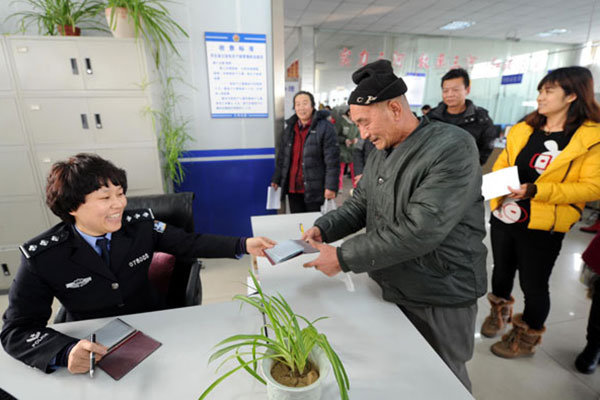
A man’s hukou is transferred at a government service center in Sanhe, Hebei province.[Photo/China Daily]
8 Density of PM 2.5 will be lowered markedly in key areas
The government will take measures to cut sulfur dioxide and nitrogen oxide emissions by 3 percent year-on-year and reduce the density of fine particulate matter, or PM2.5, in key areas.
In order to achieve air quality improvements, the government will work faster to address coal burning. More than three million households will shift to electricity or natural gas as a replacement for coal in 2017, and all small coal-fired furnaces in cities will be shut down.
In addition, the country will upgrade its coal-fired power plants to achieve ultra-low emissions. Upgrading should be completed this year in eastern region, next year in the central region, and by 2020 in the western region.
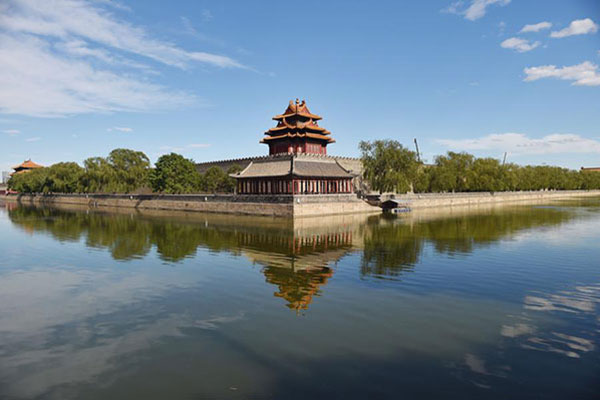
A turret of the Forbidden City under blue sky in Beijing in this photo taken on July 12, 2015.[Photo/Xinhua]
7 Six million housing units in rundown areas in cities and towns will be renovated
Take targeted policies to cut excess urban real estate inventory. Everyone needs to be clear that housing is for people to live in, and local governments should take primary responsibility in this respect. The government will take more category-based and targeted steps to regulate the real estate market. Cities that are under big pressure from rising housing prices need to increase as appropriate the supply of land for residential use, and the government should better regulate housing development, marketing, and intermediary services.
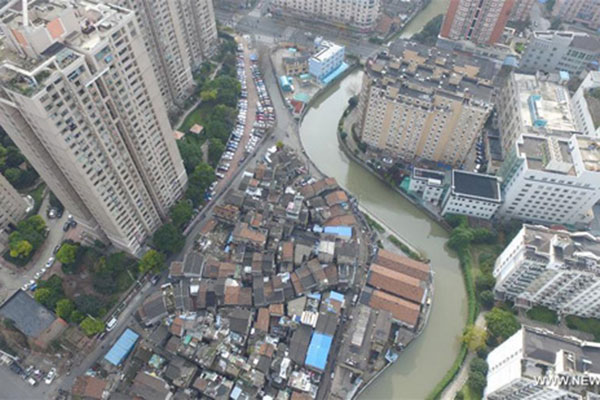
Aerial photo taken on Jan 9, 2017 shows view of Zhangqiao, one of the largest shantytowns, and surrounding buildings in Hongkou district, East China’s Shanghai.[Photo/Xinhua]
6 Fiber-optic broadband will be extended to 30,000 administrative villages
The government will strengthen efforts to ensure the care and protection of children who remain in rural areas while their parents work away in the cities and provide support for children living in difficult conditions in both rural and urban areas. It will take continued steps to resolve the problem of wage arrears for migrant workers, never allowing their hard work to go unpaid. It will continue raising basic pension payments and see they are paid on time and in full.
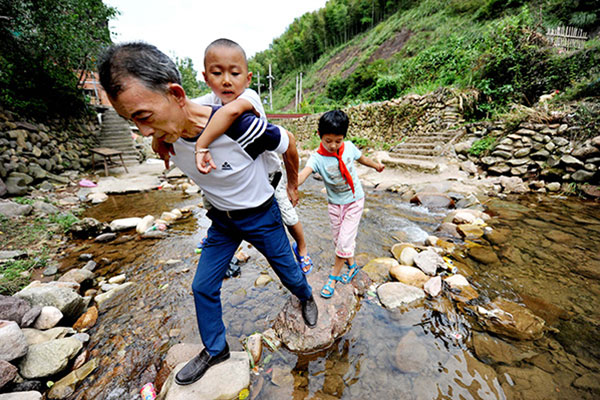
Two left-behind children follow their teacher to school in a mountainous area of Jiangxi province.[[Photo/China Daily]
5 Communities and rural areas are expected to have better access to e-commerce and express delivery services
The government will encourage development of new service models and cross-sectoral integration, combined medical and elderly care services, cultural and creative services, and other emerging forms of consumption. It will improve tourist facilities and services, and make a big push to develop rural tourism, recreational tourism, and all-for-one tourism. It will see that communities and rural areas have better access to e-commerce and express delivery services, and encourage the integrated development of physical store sales and online shopping.
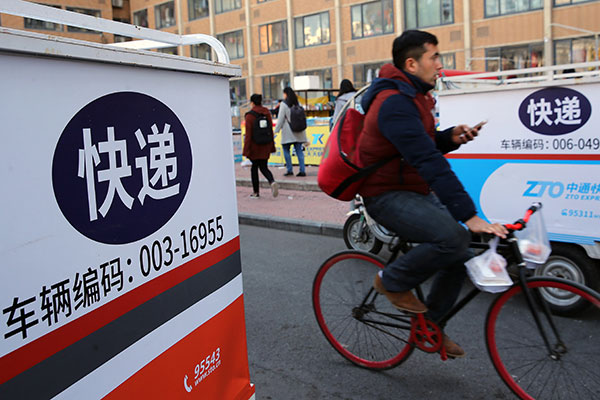
Express-delivery tricycles with eight-digit registration numbers are seen in Beijing on Dec 2, 2016. [Photo/China Daily]
4 Government subsidies for basic health insurance for rural and nonworking urban residents increased from 420 to 450 yuan per person per annum
The government will increase both government subsidies for basic health insurance for rural and nonworking urban residents from 420 to 450 yuan per person per annum and personal contributions, and will expand the scope of this insurance to cover more medicines. It will accelerate the building of a nationwide information network for basic health insurance so that healthcare costs can be settled directly where incurred. It will extend trials to use a tiered diagnosis and treatment model and a contracted family doctor service system to cover over 85 percent of prefectural-level cities in China.
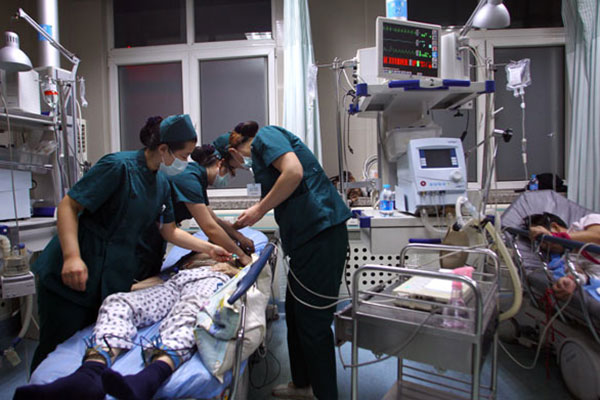
A patient undergoes treatment in the emergency room of the Armed Police General Hospital in Beijing in May, 2012.[Photo/China Daily]
3 Reduce the number of rural residents living in poverty by over 10 million
China will further reduce the number of rural residents living in poverty by over 10 million, including 3.4 million to be relocated from inhospitable areas. Central government funding for poverty alleviation will be increased by over 30 percent.
In poor counties, different rural development funds will be merged, and oversight over funds and projects will be strengthened. The strictest possible evaluations and assessments of poverty alleviation will be carried out, and stern measures will be taken to address deception, falsification, and the manipulation of numbers in poverty elimination work.
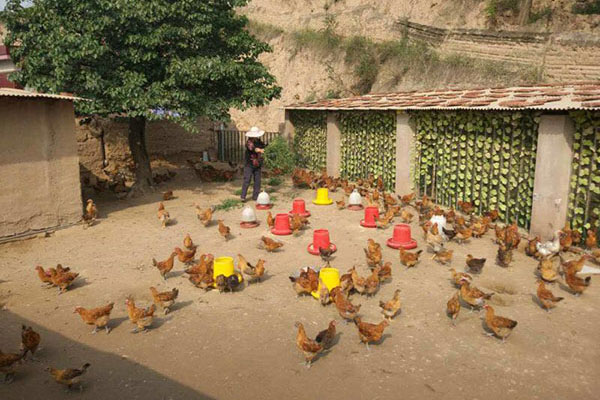
A villager feeds her chickens in Shenjialing village, located on a mountain just kilometers away from downtown Lanzhou, the capital city of Gansu province. An agricultural cooperative was set up in 2016 in the village to help poverty-stricken residents make more money.[Photo/chinadaily.com.cn]
2 Equitable and quality education
The government will combine the separate policies for rural and urban students receiving compulsory education that waive tuition and miscellaneous fees, supply free textbooks, and grant living allowances for boarders from financially disadvantaged families. It will continue to expand the enrollment of students from poor rural areas at key colleges and universities and will pilot comprehensive reform of the college entrance examination system.
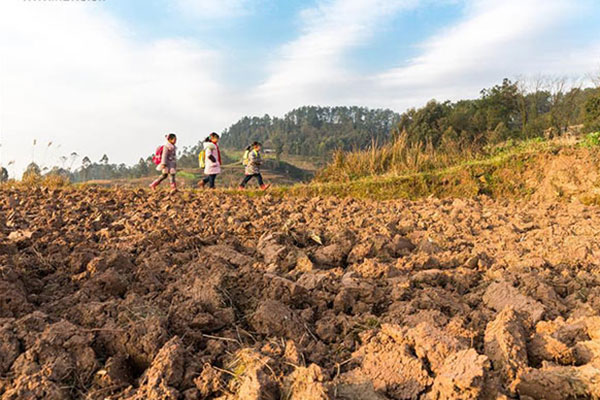
Students walk to school in Fushou township, Chongqing municipality, Feb 13, 2017.[Photo/Xinhua]
1 Over 11 million new urban jobs will be created
There will be 7.95 million new graduates this year, a record high.
To keep the registered urban unemployment rate within 4.5 percent, the government will improve employment policy, strengthen employment training, and increase support for flexible employment and new forms of employment.
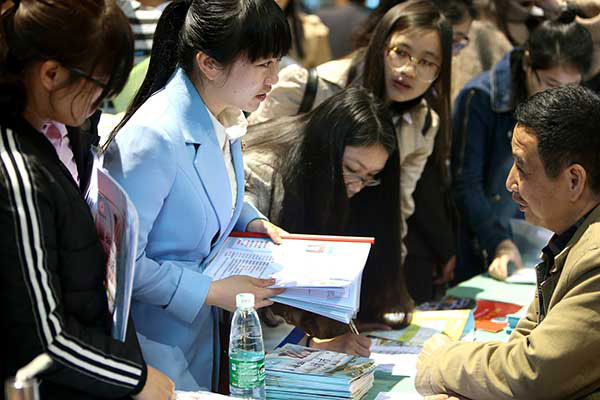
Graduates from normal universities in Hunan province interact with their potential employers at a job fair in Hengyang in March, 2016. More than 4,000 graduates participated in the event.[Photo/China Daily]
